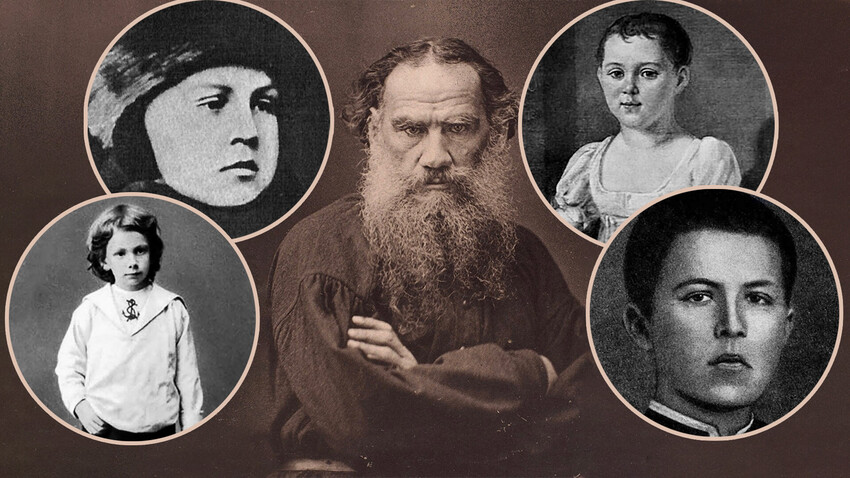
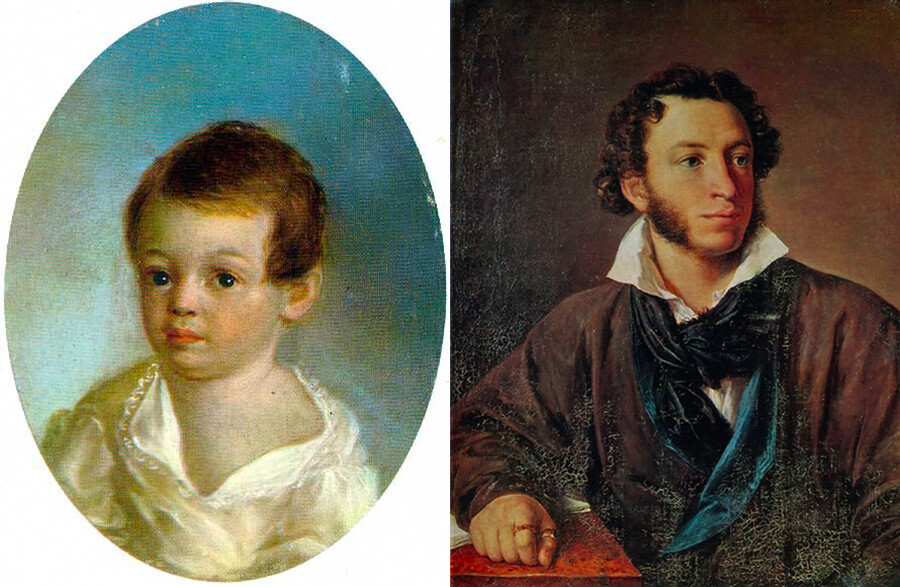
Pushkin was a cute and chubby kid with a full head of curly hair. He spent much of his childhood in the company and care of his serf nanny Arina Rodionovna, who told him folk tales, which of course went on to influence his literary path in life.
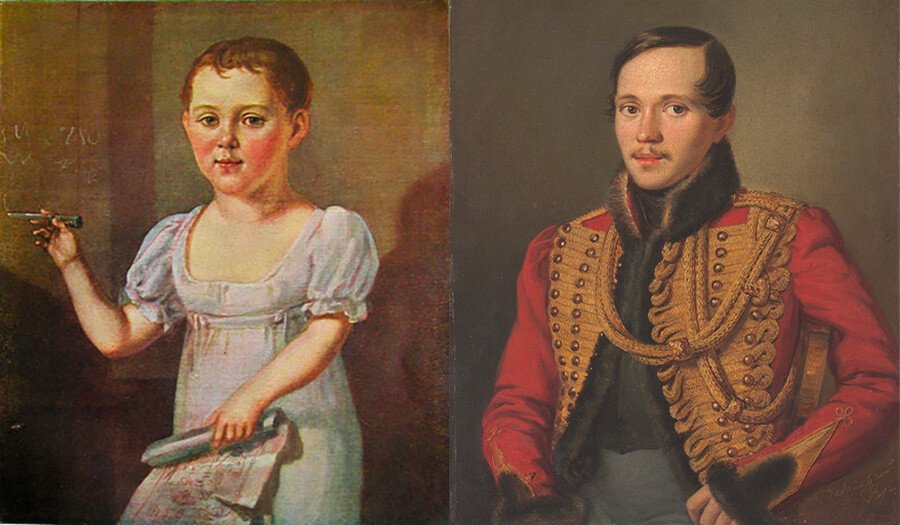
There’s a famous and, by modern standards, quite startling portrait of little Lermontov, seemingly in a girl’s dress. He’s about 3-4 years old in this portrait. Since the time of his childhood, Lermontov loved to draw, and he was quite good at it! Later he would paint his self-portrait, as well as a multitude of landscape paintings with views of the Caucasus mountains.
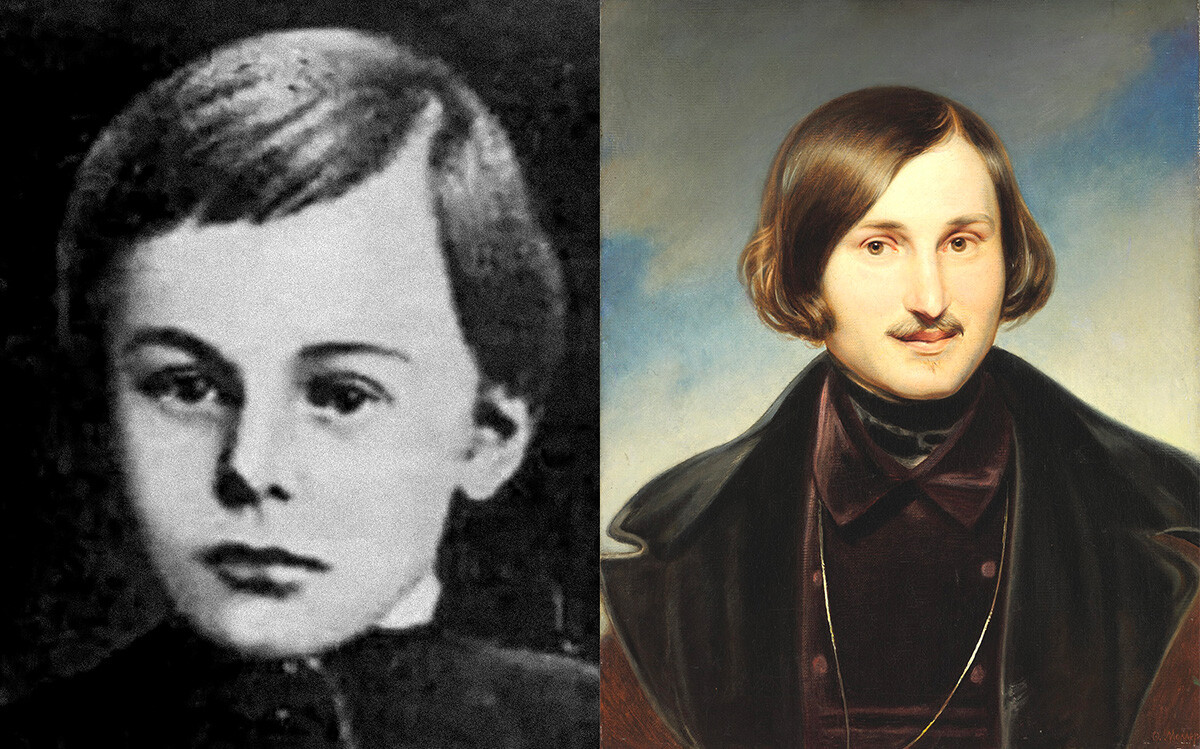
Gogol’s childhood was spent in the Poltava Governorate (modern Ukraine). The oral traditions and the reality of his native land would later become a vivid and essential part of his literary oeuvre. The myths, legends, and local tales that he heard during his young years would find their way into his novella series: Evenings on a Farm Near Dikanka, and Mirgorod.
The image of this author as a revered elder with a beard is so firmly rooted in the modern public’s consciousness that it’s hard to imagine him being a child. Tolstoy, who was orphaned early in life, described how he matured in his autobiographical trilogy Childhood. Boyhood. Youth.
This image, named “Leo Tolstoy in childhood”, has spread across the Internet. Sorry to disappoint, but this is not Leo; rather, it’s his son Ivan Tolstoy.
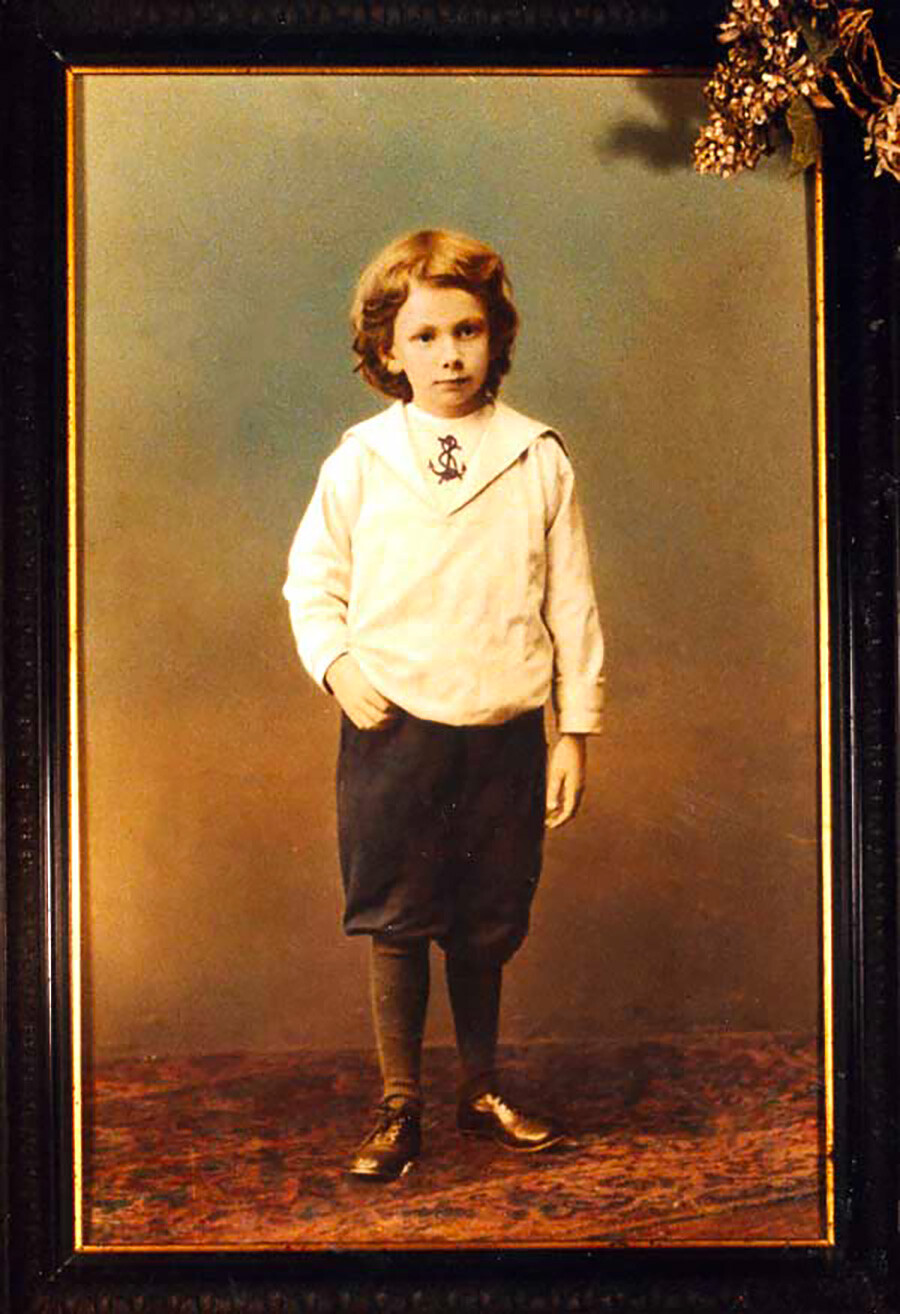
Leo Tolstoy is about 20 years old in his earliest surviving portrait.
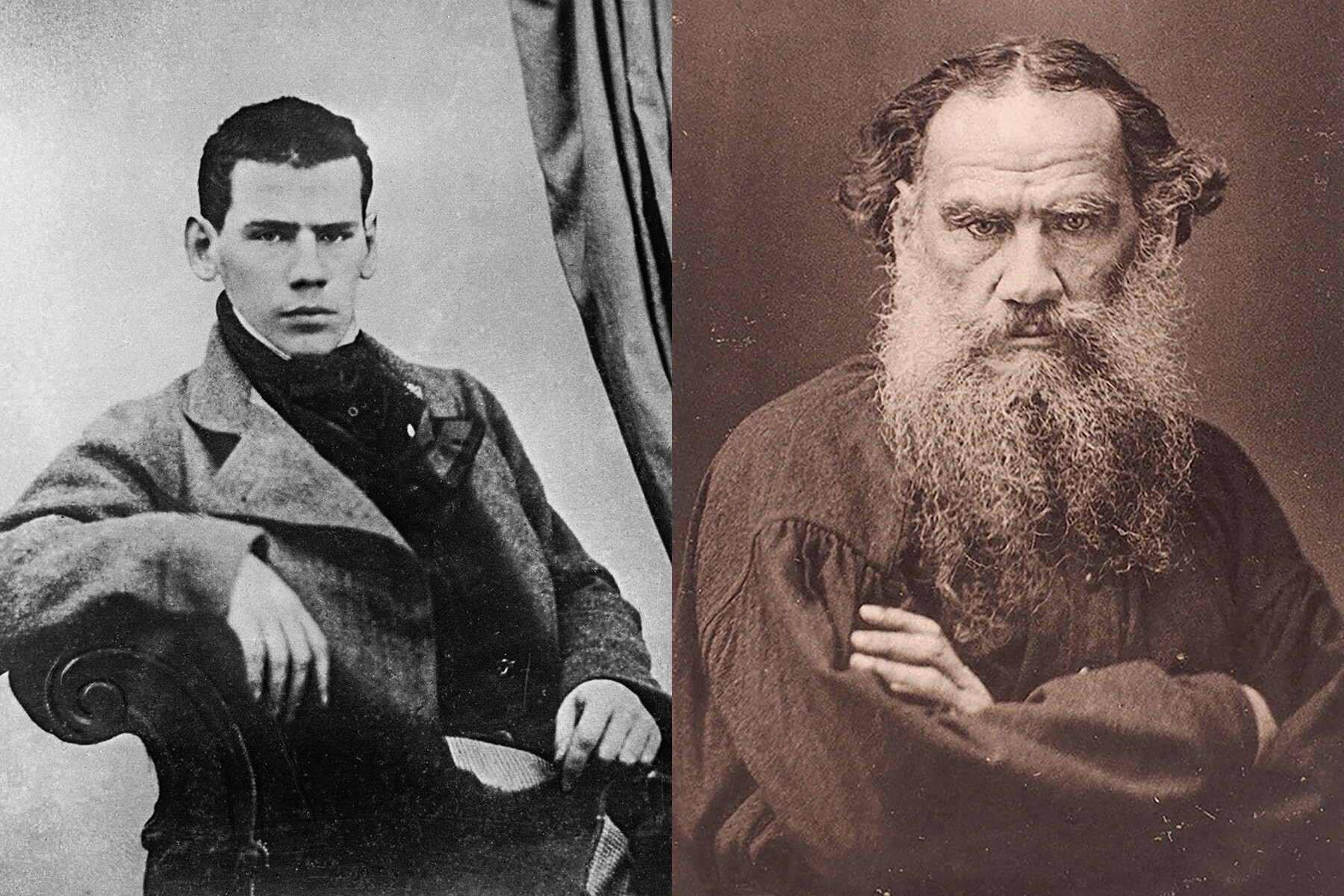
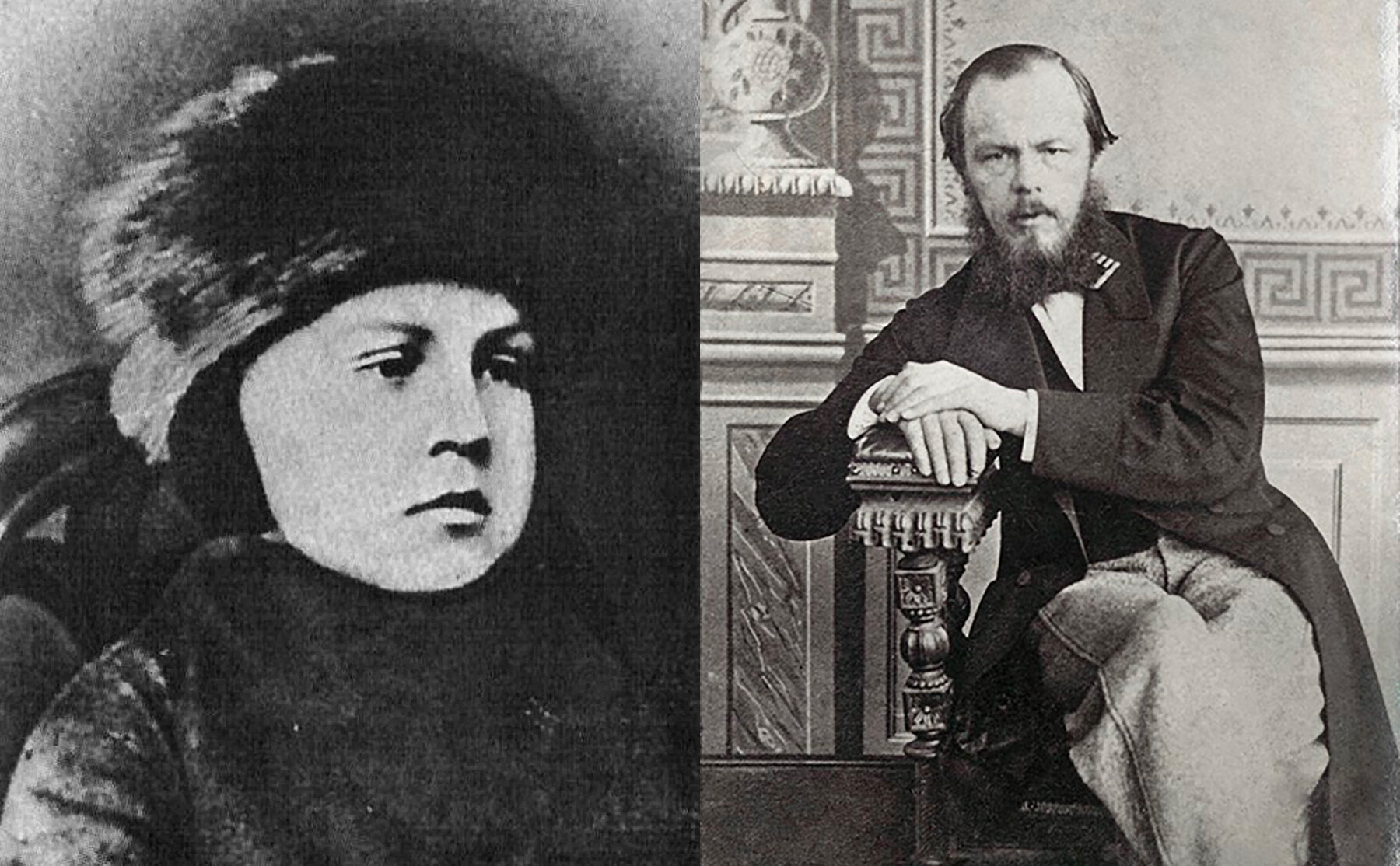
It’s hard to imagine that a man who wrote such gloomy novels had, in essence, a happy childhood. His father was a Moscow doctor. Fyodor’s parents loved their child immensely, and from early on they instilled in him a love for literature and reading. In the evening, during family gatherings they read books out loud. He also had a loving nanny who had a “joyful disposition”.
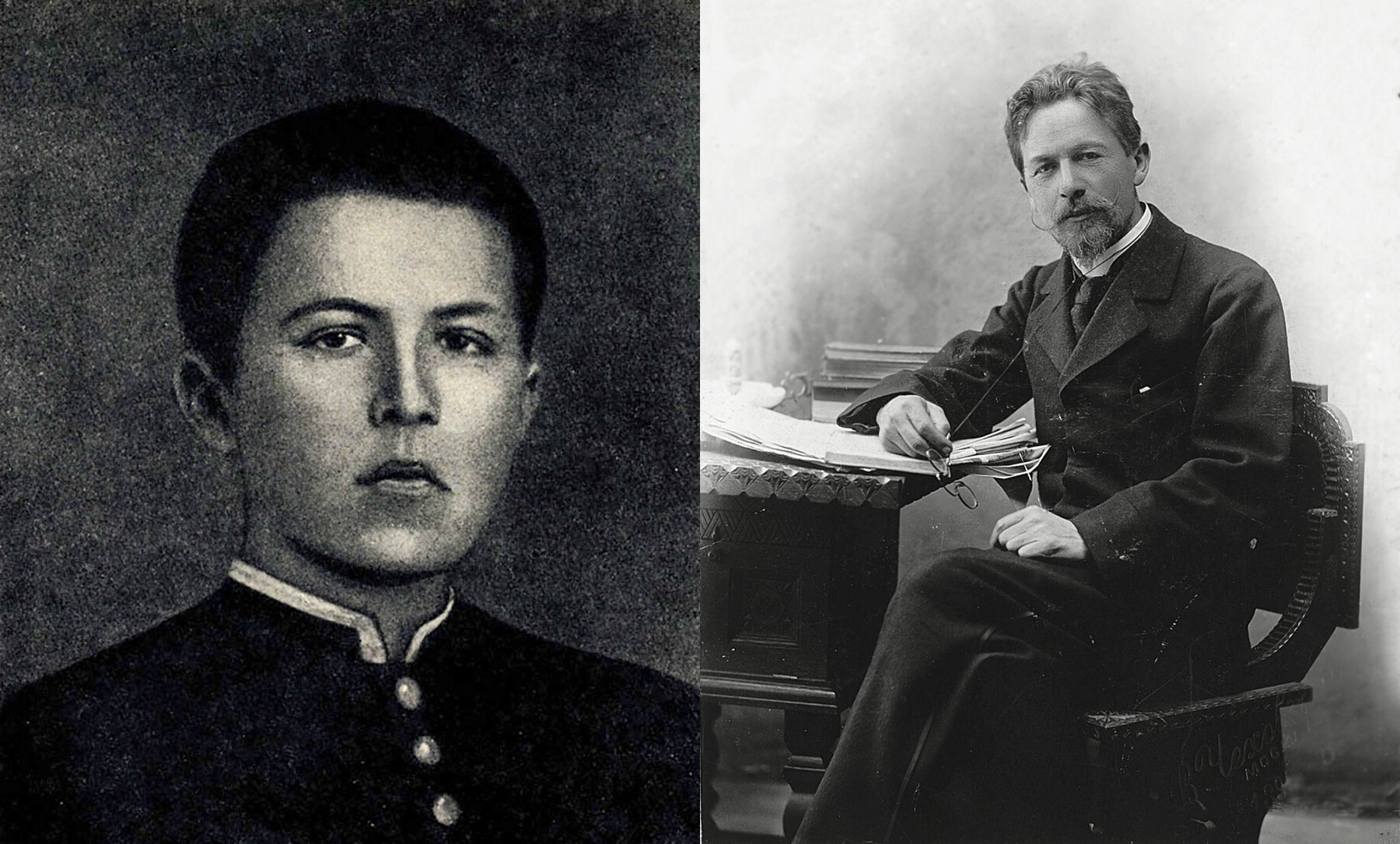
Chekhov’s childhood was spent in the southern city of Taganrog; his family lived in a small cramped house. He studied a lot, and he also sang with his brothers at church services. "We have talent from our father, and soul – from our mother,” the author would later say when he became famous. His father was quite strict and energetic, while his mother was soft, tender, and even a poetic person. Ever since his childhood, Chekhov was an active boy who exhibited great interest in writing.
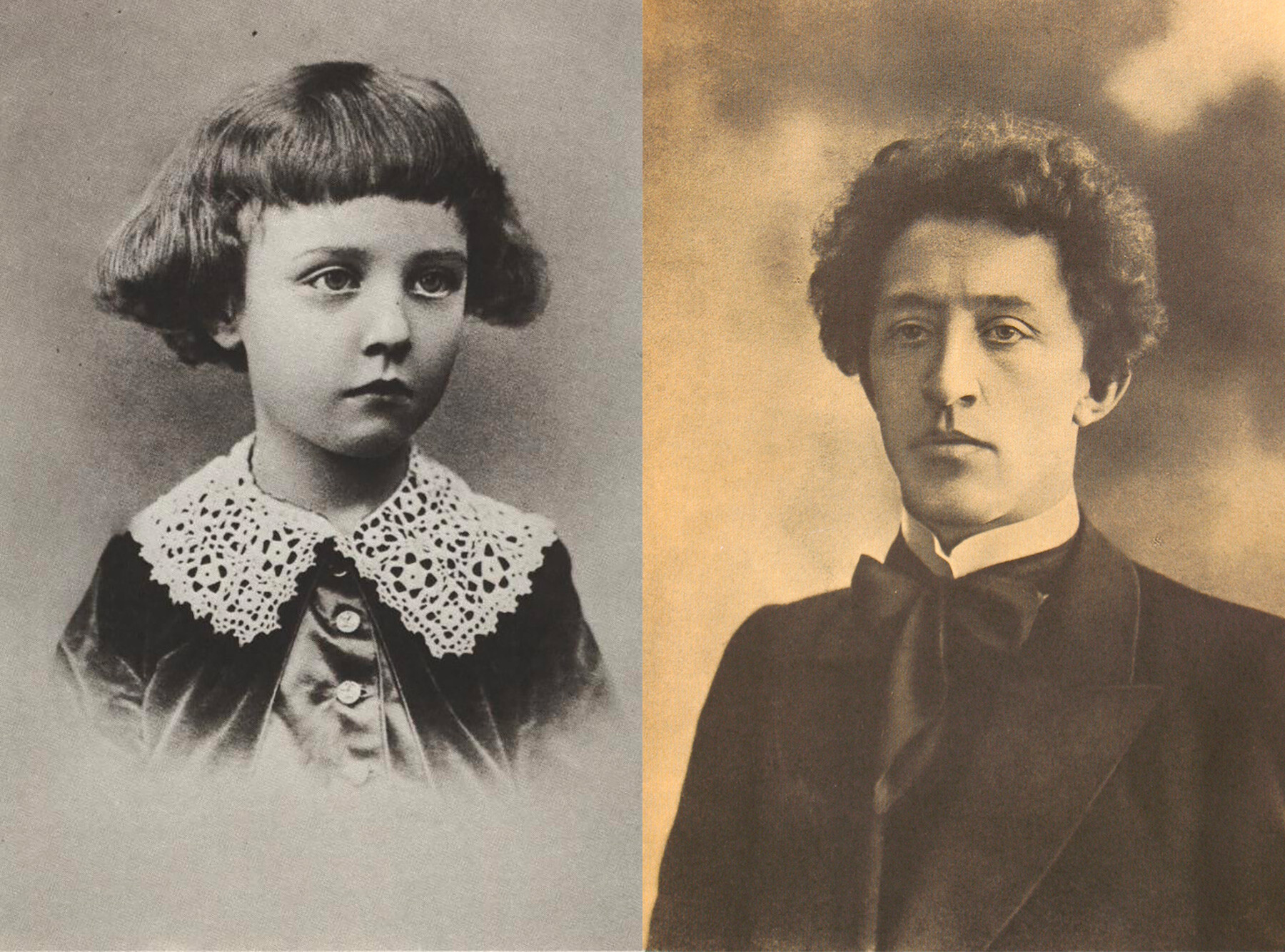
Blok was a leading Russian Symbolist and one of the main poets of the 20th century, but he was also an unbelievably creative child from an early age. He began writing poems early on; for example, as a child he published a hand-written magazine, and his family’s estate in the Moscow region hosted home-staged performances.

The author of The Master and Margarita was born into the family of a professor at the Kiev Theological Academy (then a part of the Russian Empire). At a very early age he learned how to read and write, and he was also interested in sports and theater. Bulgakov grew up in a large and close-knit family, and while his parents emphasized discipline, they gave their children a certain amount of freedom. A pleasant atmosphere reigned in their home, and the main method of education, as the writer himself said, was “jokes, affection, and kindness”. The author is on the right in this photo from his childhood.
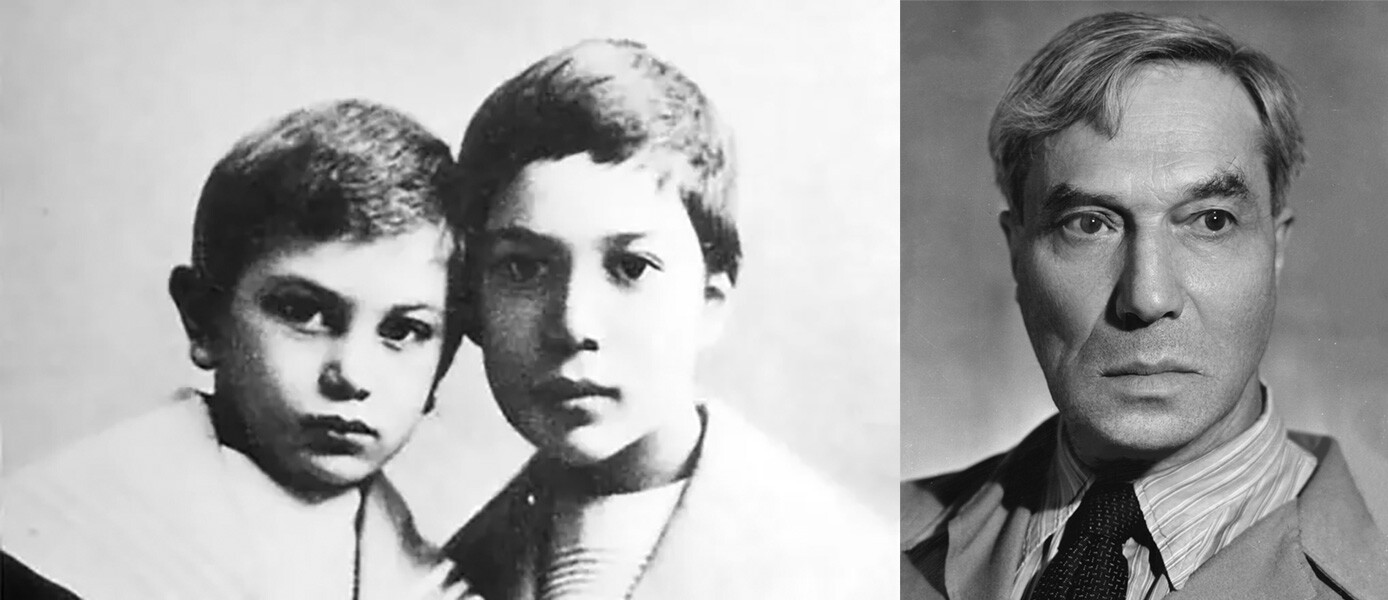
The poet and author of Doctor Zhivago (on the right in the photo) was born into a Moscow intelligentsia family – his mother was a pianist, while his father was a prominent artist and an academician. Famous artists, musicians, and writers frequented their house, and they nurtured fine taste and love for art in the heart and mind of the future Nobel Prize winner. Their home hosted creative evenings and musical performances. Pasternak even wanted to dedicate his life to music, but he believed that he didn’t have perfect pitch, so he decided to plunge headfirst into poetry and literature.
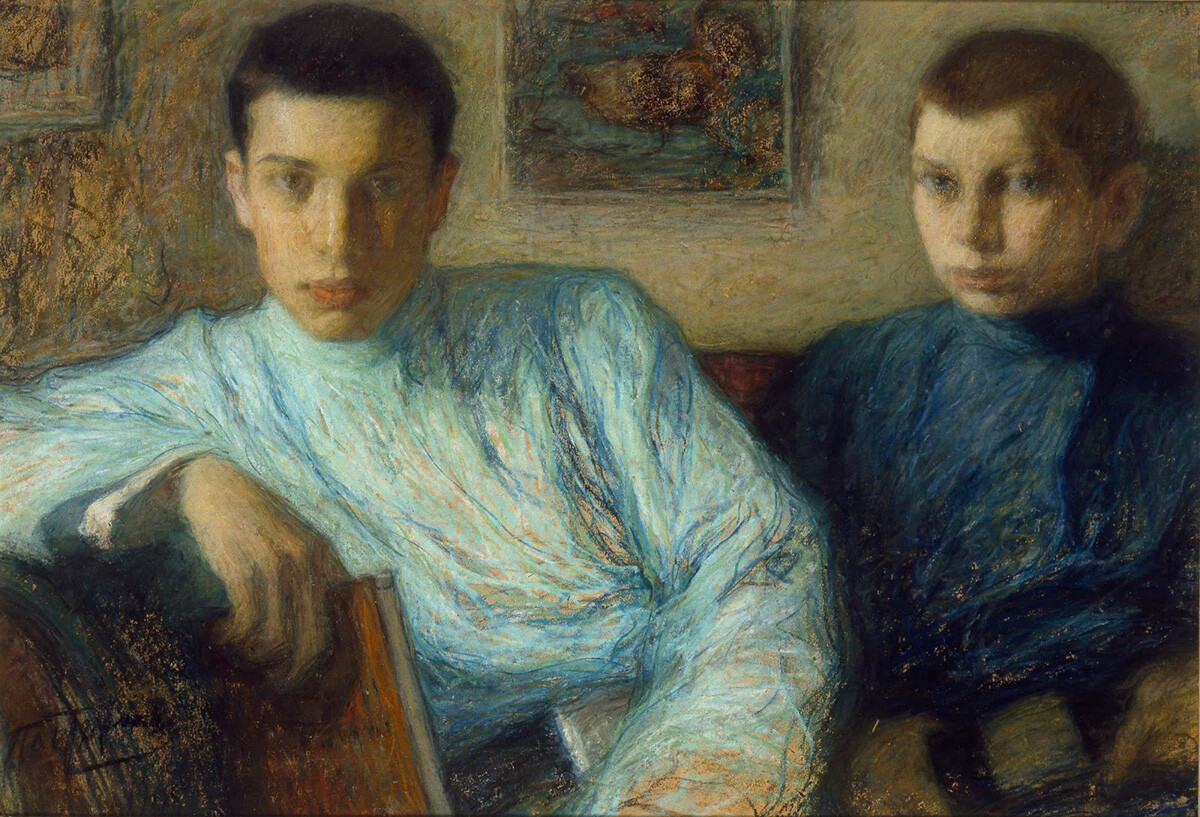
Boris (on the left) and his brother Alexander Pasternak. A portrait made by their father, Leonid Pasternak
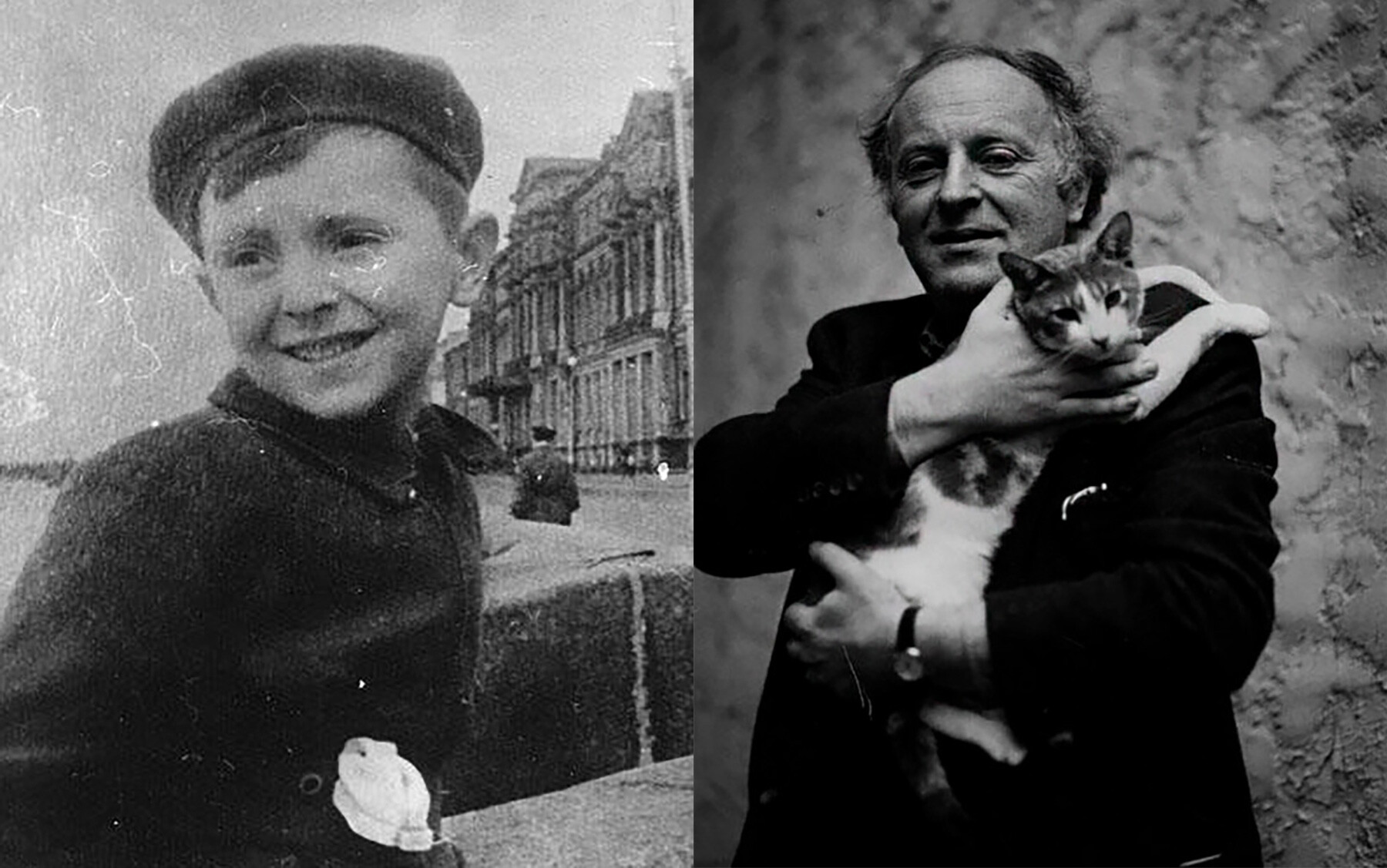
The future Nobel Prize winner was born on the eve of the Siege of Leningrad that began in autumn 1941. In 1942, he and his mother were evacuated to the Vologda Region (the city of Cherepovets). As a child, Brodsky didn’t like studying and managed to finish only seven years of school, after which he ditched formal education altogether. His negative attitude towards official schooling was in no way a reflection of the level of his intellect. In fact, from the time of his early childhood Brodsky voraciously read various works of literature on his own volition.
Dear readers,
Our website and social media accounts are under threat of being restricted or banned, due to the current circumstances. So, to keep up with our latest content, simply do the following:
If using any of Russia Beyond's content, partly or in full, always provide an active hyperlink to the original material.
Subscribe
to our newsletter!
Get the week's best stories straight to your inbox